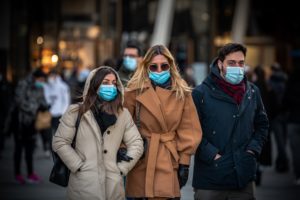The public want a more sustainable future
The public wants a more sustainable future but they are not sure how it will actually materialise, according to a new international study.
The study, which was led by the University of Bristol, reflects people’s preferences in the UK and the US throughout the pandemic.
The research found that a ‘fairer future with grassroots leadership’ was around four times more popular, favoured by some 40% of participants, than a ‘return to normal,’ which only garnered support from little more than 10%.
The majority of respondents expected normality to resume regardless of their preferences, mistakenly believing that their views were in the minority and that most wanted a return to the status quo.
Lead author Professor Stephan Lewandowsky, Chair in Cognitive Psychology at the University of Bristol, said: ‘The findings revealed people’s appetite for positive change, but also a strong sense of scepticism about whether this would actually materialise or that their views were in fact widely shared.

‘This is important for everyone, including leaders and policymakers, to know so we can recognise and raise awareness of the common consensus contrary to popular belief. When people start to feel in the majority with their hopes, this instils greater belief and action towards achieving and making them real.’
Nearly one in six UK respondents welcomed the lost pollution and a desire to care for the environment was voiced across both sides of the Atlantic.
Similarly, more than a fifth of respective respondents wanted a less individualistic and more caring future, with comparable numbers of UK respondents hoping to use their time differently. Keeping a sense of community, friendliness, and continuing to look out for others was also deemed important, including maintaining a great appreciation of essential workers among UK respondents.
Co-author Keri Facer, Professor of Educational and Social Futures at the university’s School of Education, added: ‘This study provides hugely rich insights into people’s feelings during the Covid-19 pandemic and how they want to emerge from it.
‘While many have faced great sacrifice and loss, there are also some silver linings which people clearly want to hang on to both for their own benefit and the greater good. These range from having more time and flexibility to devote to family to playing a more active role in the community, caring for others, and protecting the environment which is also in grave peril.’















